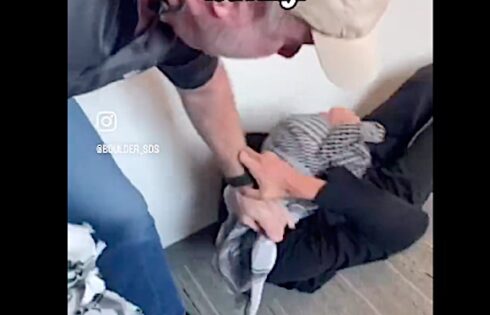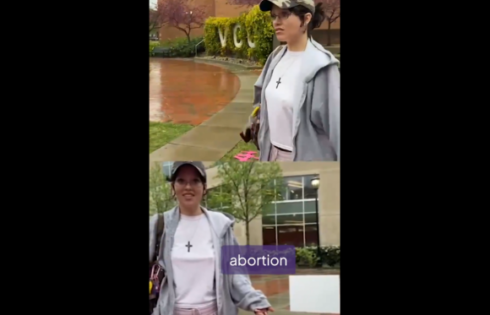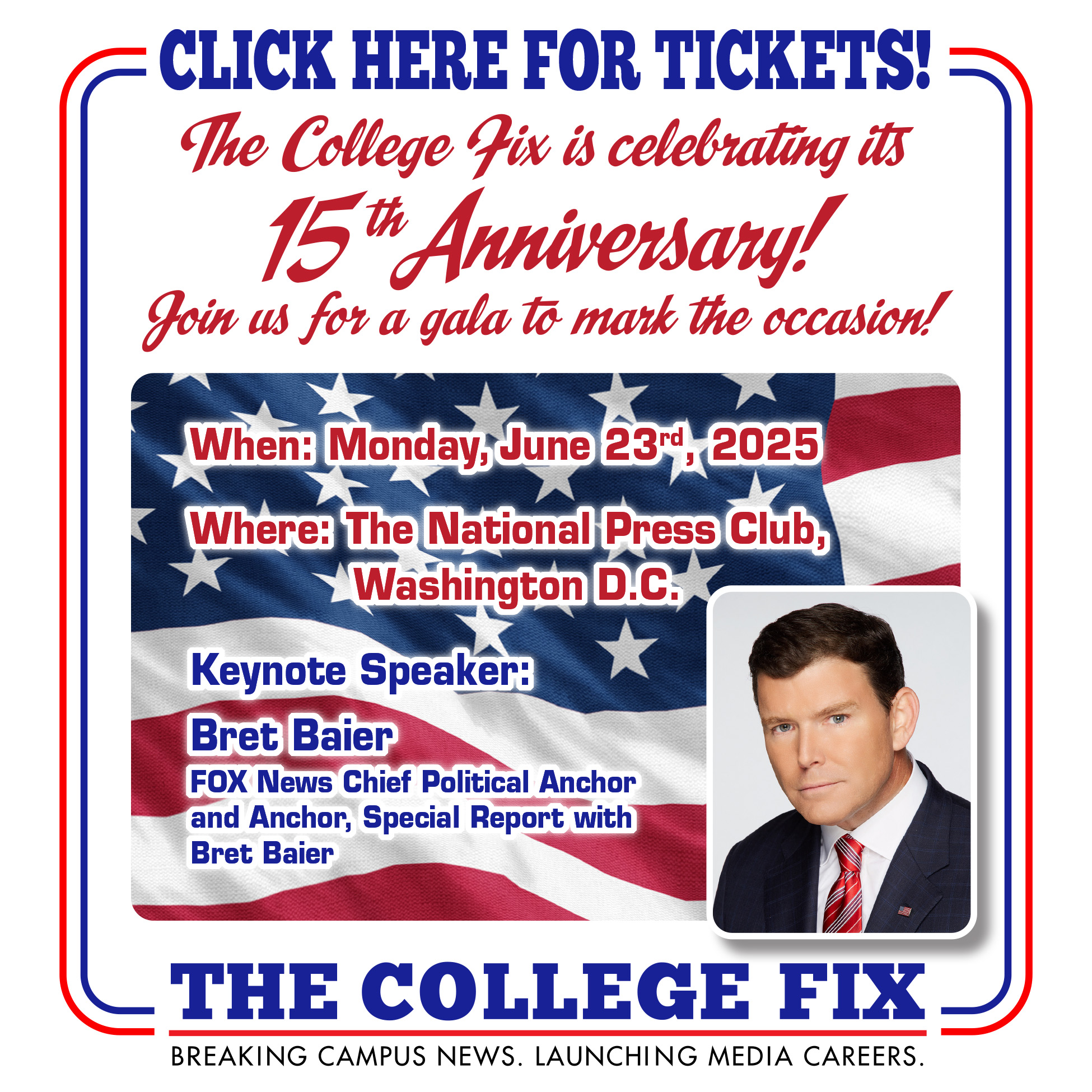BY: Jennifer Kabbany
An Orange Coast College student has been suspended for recording his professor’s anti-Donald Trump rant, in which the scholar called the election results an “act of terrorism,” called Trump a “white supremacist,” and called Mike Pence “one of the most anti-gay humans in this country.”
It’s not a stretch to presume many college educators cheered this decision. Professors don’t want to be recorded because they don’t want the public to know what they’re teaching students.
Why? Because all too often what professors teach, at least in the social sciences, amounts to leftist drivel at a minimum and outright indoctrination at its worst.
Videos such as the one the Orange Coast College student took are bad for business.
“[I]n the ‘social sciences’ — disciplines outside the natural sciences and math — a large number of college teachers inject their politics into their classrooms. And if they are recorded, the general public will become aware of just how politicized their classroom lectures are,” explains conservative pundit Dennis Prager. “But there is another reason. Most professors objecting to being recorded know on some level that they are persuasive only when their audience is composed largely of very young people just out of high school. They know that if their ideas are exposed to adults, they may be revealed as intellectual lightweights.”
But the argument that students do not have the right to record their professors is not sound. Prager adds:
All rules governing the recording of conversations without permission should apply to a professor meeting privately with a student. But when professors stand in front of a class, they are in the public domain. Moreover, the public pays at least part of these professors’ salaries at virtually every university. We therefore have a right, and even a duty, to know what professors say publicly in classrooms. Any professor who is not ashamed of what he or she is saying in class should welcome being recorded. And any student taking a class with a professor who objects to being recorded should know that this objection is almost always equivalent to the professor saying: “I want you to hear what I say in class because I’m quite confident that you can’t differentiate between instruction and indoctrination. But if what I say goes public, people who do know the difference will expose me as a propagandist.”
There are additional arguments for allowing students to record professors, such as the fact that there is no expectation of privacy in this technological age on a campus stuffed with thousands of students with smart phones. Campuses should be fair game in any situation that wouldn’t otherwise create a reasonable expectation of privacy, such as counseling sessions or bathrooms.
Other points articulated in a recent staff editorial from the Orange County Register include:
… To be sure, the freshman broke the rules about recording in class, but those rules are also absurd, especially considering that recording lectures is a common way for college students to study course material. Furthermore, OCC is a public institution that receives public money. It is not some private company, and Cox’s opinions should not be considered proprietary information protected by copyright.
Moreover, Cox opinions don’t belong in the classroom. Teachers are meant to teach, not persuade or indoctrinate students with their bias. The public has a right to know if their money is being spent on education or on erecting a bully pulpit to demonize certain students and express inflammatory viewpoints.
At its core, this is a full-fledged assault on free speech. And a desire to intimidate and squash differing political opinions. If Cox did not want her words shared publicly, she shouldn’t have uttered them in a lecture hall. …
In California, there’s also the California Leonard Law, which states that “neither the University of California or the California State University systems nor any California community college district may enforce any rule that subjects a student to disciplinary sanctions if the student is engaged in conduct or speech that is protected by either the California Constitution or the First Amendment of the United States Constitution if such conduct or speech would have occurred off campus.”
In the end, recording professors is an issue that is not going away as cell phones get smarter and students wise up to professors’ antics. This battle has only just begun, and in the end, free speech must prevail.
Jennifer Kabbany is editor of The College Fix.
MORE: OC Register declares war on college that booted student for recording prof’s anti-Trump rant
MORE: Student who recorded prof’s anti-Trump rant suspended, lawyer vows to fight sanctions
MORE: Professor tells students: Trump’s election an ‘act of terrorism’ (VIDEO)
Like The College Fix on Facebook / Follow us on Twitter





Add to the Discussion